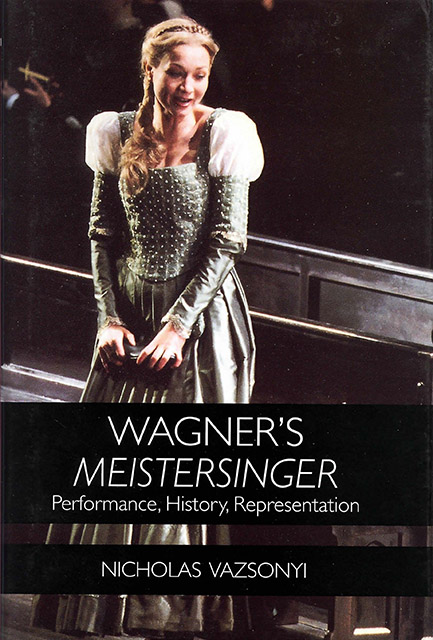8 - Die Meistersinger as Comedy: The Performative and Social Signification of Genre
Published online by Cambridge University Press: 25 March 2023
Summary
Nothing is really serious without humor.
—Heiner Müller
I. Die Meistersinger and the Question of Genre
The chapter titled “Meistersinger-Staat” in Joachim Köhler's controversial book Wagner's Hitler examines how Nazi ideologues appropriated and enlarged upon the utopian potential embedded in Wagner's comic opera Die Meistersinger von Nürnberg by exploiting its material to turn public occasions such as party rallies into cultural performances. Notwithstanding the grand sweep of Der Ring des Nibelungen, the revolutionary musical power of Tristan and Isolde, and the mysticism of Parsifal, Köhler insists that it was the utopian vision of Meistersinger as comedy that most inspired Hitler and the Nazis to make it the centerpiece of their social and cultural thinking. This appropriation seems curiously anticipated—given his Marxist leanings—by Ernst Bloch, who contended that the “happy ending” of the comic genre, although perhaps the result of intrigue, deceit, and illusion, nevertheless had the power to release forces that would move society in a utopian direction. The following will explore the ways in which the dynamics of comedy infuse Die Meistersinger with a cultural and social potential at once so useful to the Nazis and troubling to later scholars.
Richard Wagner is rarely considered in terms of “comedy” or “humor” and, although originally conceived as a “satyr play” to his opera Tannhäuser, by the time of its premiere in 1868, Die Meistersinger von Nürnberg had evolved into a substantially more sophisticated work with decidedly “serious” content. This evolution is reflected in the change in Wagner's description of the genre from “Komische Oper” and “Große komische Oper” in the prose drafts to simply “Oper” in the final version. An early review by Eduard Hanslick of a production at the Vienna State Opera in 1870 complained that Wagner's talents as a writer were “inadequate, particularly with respect to humor.” Hanslick was even harsher about the comic qualities of the music, calling it “stilted, profuse, even repulsive.” More recently, Carl Dahlhaus noted that Die Meistersinger “is the brainchild of an untrustworthy sense of humor.” It seems few would agree with Martin Gregor- Dellin who labeled Die Meistersinger “the richest and wittiest libretto in the whole world of opera,” a view strongly challenged by Martin von Amerongen.
- Type
- Chapter
- Information
- Wagner's MeistersingerPerformance, History, Representation, pp. 145 - 164Publisher: Boydell & BrewerPrint publication year: 2003



